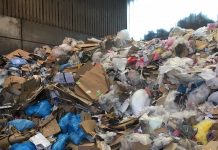ESWET welcomes the opportunity to contribute to the Industrial Emission Directive revision. Better implementation of the IED would further strengthen the waste management sector’s leading role in pollution prevention.
The waste management sector is, by definition, a key actor in pollution prevention. Under the Industrial Emissions Directive (IED), which regulates pollutant emissions from industrial installations, the Waste Incineration sector’s emissions are already the lowest of all combustion industries.
To further improve the IED design and implementation, ESWET replied to the European Commission’s public consultation on the IED revision, highlighting some issues already identified on the release of the Waste Incineration BREF and BAT conclusions in December 2019. The main points that ESWET would like to bring to the attention of the European Commission to achieve a higher level of environmental protection are:
1) Consistency of the IED with other EU legislation: the IED revision should not lead to legislative overlaps and inconsistency or changes that could run against its integrated approach.
2) Extension of the IED to landfills and methane emissions: complete coverage of landfills and methane emissions should be ensured to guarantee a level-playing field in waste management and reduce methane emissions.
3) Alignment with the E-PRTR: the European Pollutant Release and Transfer Register (E-PRTR) should allow for easy corrections of data, which is nearly impossible today.
4) Clarity of the BATs & preservation of the integrated approach: an integrated approach means that the permits must consider the plant’s whole environmental performance, and not only the lowest emission or highest efficiency level for each technique taken separately.
5) Clarity of Normal/Other Than Normal Operating Conditions: define the new BAT-AELs in R-EOT instead of in NOC would be the most environmentally sustainable option for the waste incineration sector.
6) Tackling the uncertainty issue: At the low concentrations encountered in WI BATAELs, the Best Available Techniques in monitoring do not allow to meet the requirements of the monitoring standards, mandatory according to the IED. The scattered pattern of approaches considered in different regions/Member States shows that a solution is yet to be found.
Find here the complete position paper.
Source: ESWET – European Suppliers of Waste-to-Energy Technology aisbl






